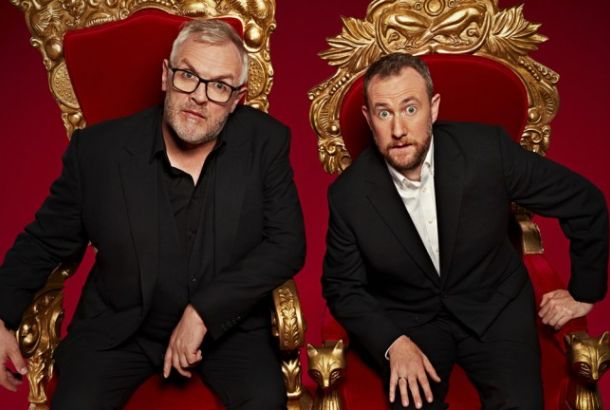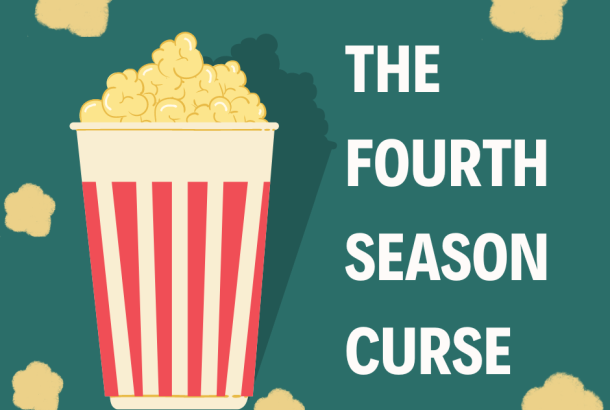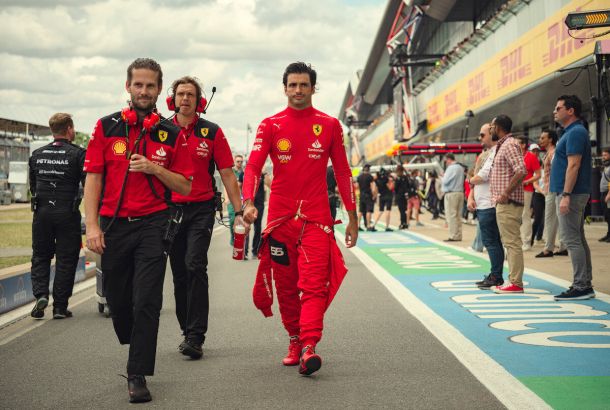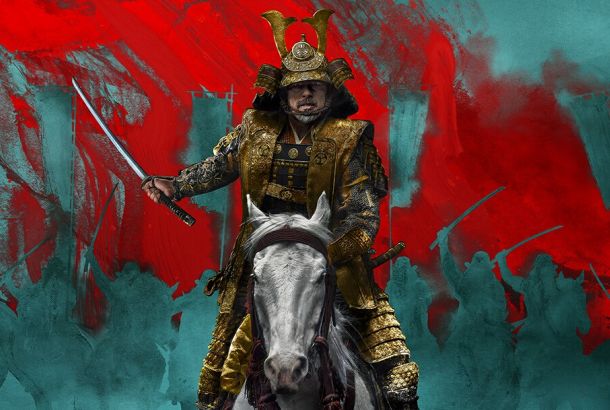Outer Banks Season 3: Treasure or tragic?
By Belle Lewes
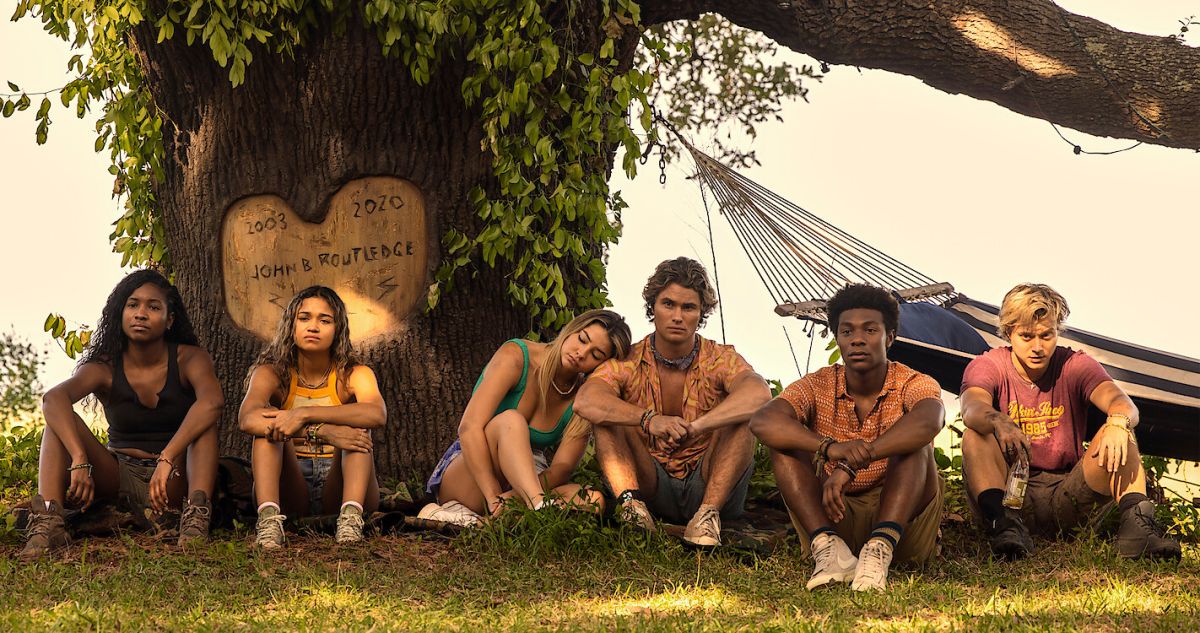
Outer Banks season three has finally dropped and, as always, it’s been a hit. Nothing brings more comfort at the end of winter and the beginning of spring than a highly saturated and stiflingly hot adventure series where bikinis and shorts are the top priority. For those who haven’t watched it, the actor Chase Stokes, who plays the protagonist John B. Routledge, described it as “‘The Goonies’ all grown up”. While he may have meant it snidely, I think it’s a very apt description.
Warning: Spoilers ahead.
The central characters are made up of initially four ‘Pogues’, a name for the working class in Outer Banks. JJ (Rudy Pankow) is a loveable rogue, Pope (J.D.) is intelligent and logical, Kie (Madison Bailey) is half kook, half Pogue, and fiercely loyal, and John B is the exploring protagonist and son to Big John (Charles Halford). With the addition of Cleo (Carlacia Grant), a worker on the cargo ship from the end of season two, and of course the gorgeous, charming, kind, and wealthy Sarah Cameron (Madelyn Cline), the Pogues should have been the central storyline for this season, as they have been for the last two seasons. After all, the story is about teenagers who look for treasure, but ultimately make mistakes, fall in love, feel the pain of overbearing and absent parents, and dream of leaving poverty in change for becoming ‘Full Kook’.
So, why was this season almost entirely about Big John? As a character, I found him insufferable. He was a terrible father to John B, leaving him for over a year to believe that he was dead, with no real intention of returning home to raise his only son. Moreover, he would have happily traded his son for the treasure of El Dorado, the newest treasure haul in season three. He was impatient, angry, self-obsessed, and a climber at heart. He utilised the resources and hard work of all his peers, from his son’s friends to his former allies Carla Limbrey (Elizabeth Mitchell) and Ward Cameron (Charles Esten).
If the fact that his two former allies were the villains of seasons one and two wasn’t enough of a concern, then two minutes of screen time were enough to make any viewer wary of his intentions, and we were right to be cautious.
Because the season was so invested in the father-son dynamic of John B and Big John and their quest for gold, many of the side characters lacked real depth or storylines. Limbrey, who was a villain in season two, was conned out of the program with a very unconvincing passing of a fake shroud that she had tirelessly pursued in the previous season. As the mastermind that she was, I’m unconvinced that she would have believed the lie or ignored the potential for the treasures of The Royal Merchant, The Cross of Santo Domingo, and El Dorado.
Similarly, Carlos Singh was a very unconvincing villain. Why would such a powerful man converse with teenagers and believe every lie that Big John told him? Equally, I somewhat doubt that a mafia boss would let himself be stranded in a jungle when he supposedly had control over the entirety of Central and South America. As such an infamous name, he didn’t have enough character development. Claiming that his parents were on the original ship was a valid reason for his need for gold, but then why was he the leader of an entire empire? What power did Singh actually have, and how did he gain it? Where did he get his money and following? Considering he was such a major character, his story was riddled with plot holes.
Rafe Cameron (aka Drew Starkey) was a highlight of this season for me. His redemption arc in the first two episodes was somewhat understandable, he showed genuine guilt for what he did to Sarah, and then care for his father when he was hurt. All Rafe Cameron really needed was guidance and attention, everything that his sister Sarah had. So why at the end of this fantastic, realistic character redemption as he landed with a somewhat unfulfilling romance that gains no traction or recognition? It felt like he was restricted then to suddenly being a boy in love and not a man with scarily large ambitions and little to no morals.
Then again, the love stories of this season were altogether lacking. Maybe others will disagree, but to me, one of the central plot points of Outer Banks is the romantic storyline between the Pogues. From John B and Kiara, to Topper and Sarah, to John B and Sarah, and Pope and Kiara, the love triangles in this program have been a significant plotline, as even though they are treasure-hunting fugitives, they are ultimately teenagers.
Firstly, Pope and Cleo had huge potential, and in many ways, this season did invest in them. Pope was brokenhearted, and Cleo helped him in the ‘no love club’. They shared a house, she met his parents, and they spent every minute as a duo, so why did their storyline feel somewhat unconvincing?
JJ and Kie also felt like a let-down, they had been built up since season one as the star-crossed forbidden lovers who were too different to ever make sense. There was tension this season, it’s true, and it built and built, from the boat scene to when JJ escaped on his motorbike. So, why was it that both of these greatly matched and anticipated couples barely shared one kiss? There were so many opportunities for the two couples to celebrate together, either kiss, hug, or join hands even, but the ending felt entirely platonic. Somehow Rafe had more tension with Kie this season than JJ.
Too many major plot points were glossed over this season, from the burning down of John B’s house to the characters of Limbrey and Singh. That being said, the parent-child relationships in this season were exceptionally well done. Ward earned total redemption for me, and Kie’s relationship with her own parents was tragic but represented a sad reality for many American teens. We had Pope’s unconditionally caring parents, neglectful parents from JJ and Cleo, manipulative parents from John B, restrictively protective parents from Kie, and problematic but still unconditionally loving parents from Ward.
I would have liked to have seen more of the Pogues all together in this season and much less of Big John and even Singh and his men, but some serious pro points to this season were:
- Rafe Cameron in episodes one to four.
- Sarah Cameron’s realistic return to what she knew and missed in Kook life.
- Ward Cameron’s redemption arc.
- Kie’s continually open love for JJ in every hug.
- The return scene from Poguelandia back to Kildare, in episode four.
I recommend a watch, as even with plot holes, the visuals of the programme are always great (although the CGI team for editing stunt doubles need to be axed – special mention for episode two, 22 minutes). It’s a great piece of escapism and while far-fetched, it’s one of Netflix’s most believable representations of teenage friendships. Not a must-watch, but still recommended.
